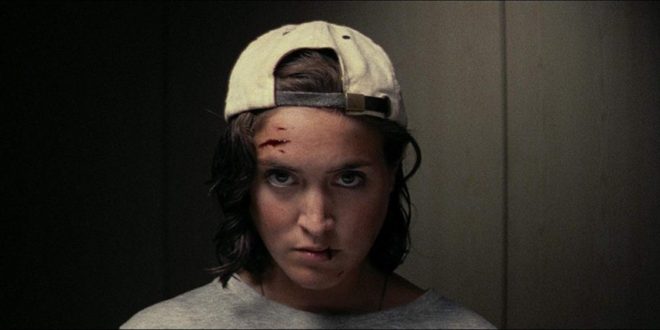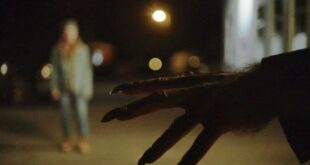Every once in awhile, a film comes along that challenges every preconceived notion of how art is evaluated. As a critic, there are certain bedrock assumptions that allow me to meet a film on common ground. Just as I leave the house and expect a blue sky, green grass, and gravity, I expect any movie to follow the traditional rules of sound design, camerawork, and narrative function.
So, when a filmmaker decides to change the rules and presents me with an aesthetic equivalent of a sky full of stripes and cyan grass, it leaves me floating. I light up. I feel like a Lovecraftian protagonist thumbing through a text written by Someone Else, someone from a faraway, forbidden, lovely, and strange place I’ve never been and could never go. That emotion courses through Tilman Singer’s surreal new mind-melting film, Luz.
The film’s synopsis reads thusly:
Luz, a young cabdriver, drags herself into the brightly lit entrance of a run-down police station. A demonic entity follows her, determined to finally be close to the woman it loves.
That’s Luz if The Exorcist is two priests visiting a sick child. More than a film watched for plot, Luz is an unrelenting, jarring sensory experience that challenges the viewer.
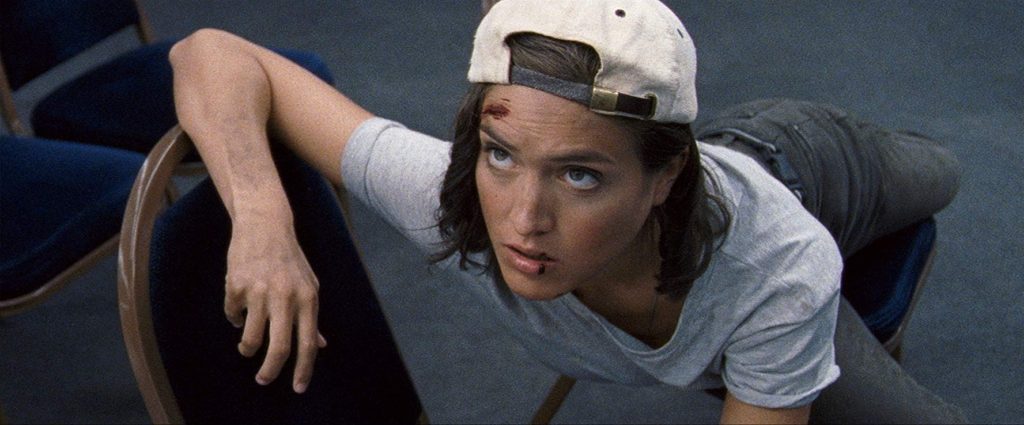
This film feels like a cinematic autopsy, with a surgeon’s capable hands extracting individual components of a story and examining them, one at a time. We hear a soundtrack, feel the actors’ performances, see meticulously composed shots, and we are forced to re-insert a movie’s organs as we see fit, and marvel in awestruck horror at what we make of it.
There are scenes throughout Luz that manipulate sound and force you to listen. Score and sound effects leap atop one another like territorial animals. The music tells you how to feel; the sound effects tell you where you are. These scenes truly capture what demonic influence must feel like.
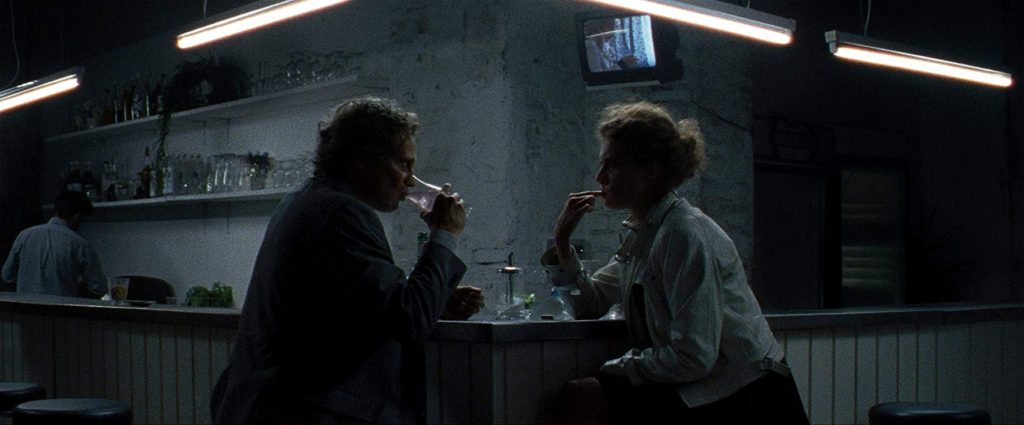
The slow, angry scrape of a whiskey glass against apocalyptic drums creates a tension in the viewer, a hyper-consciousness of the world of the film, with another reality atop that world, peeking down and manipulating events. When, in an early scene, two people talk in a bar, the lens is wide enough to observe every detail of their surroundings, and nothing is out of place. The sound, however, shouts and screams that there’s evil here that one cannot see.
The small cast of Luz keeps things hyper-grounded with understated, expert performances. Luz herself (Luana Velis: Diebe des Shlafes 2015) wanders through the film with a detached intensity that smolders, her fear and defiance practically glowing red just offscreen. The enigmatic Nora (Julia Riedler: Goster 2016) delivers a strange, seductively weird portrayal that pulls you out of your skin in every scene. Johannes Benecke (Moebius 17 2005), as the psychiatrist Olarte, delivers a frenetic performance descended from early Klaus Kinski or Angst’s Erwin Leder.
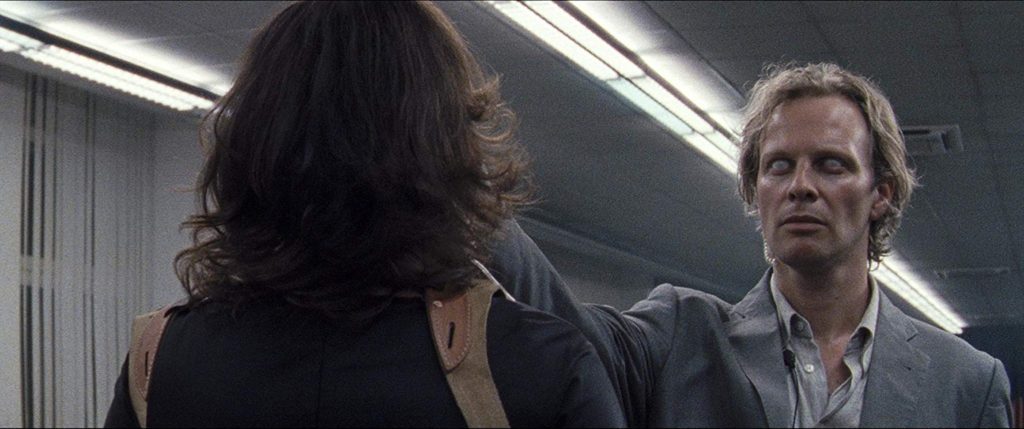
The audio distortion and uncanny sound tricks persist even further, though, in the film’s treatment of language. In a scene where Olarte hypnotizes Luz to unlock more information about her, characters speak multiple languages, switching from original German to Spanish to English with disorienting speed. When the hypnotist suggests Luz relive her time as a taxi driver, we hear the rumble of her car and the crackle of her radio as she pantomimes. Throughout the film, one can feel the puckish hand of Singer’s directing doing rope tricks with the line between reality and hallucination.
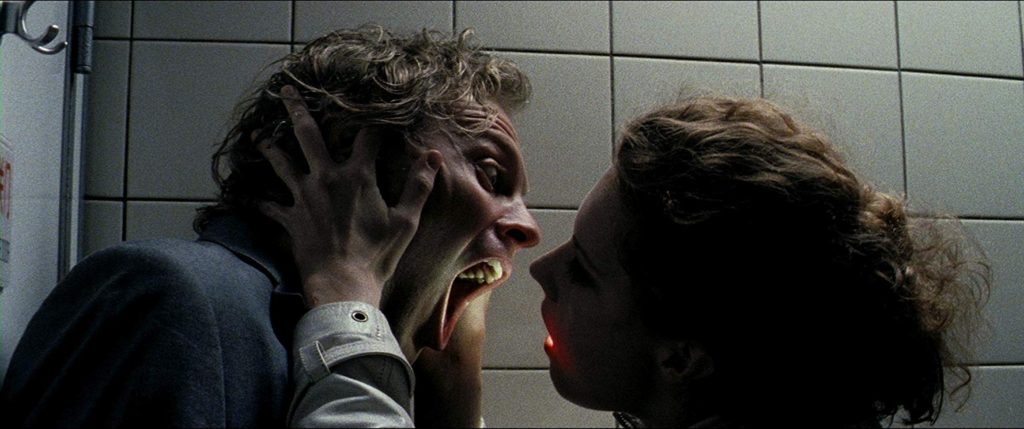
Luz’s supernatural scares go off like gunshots, their effectiveness doubled by the atmosphere of discomfort Singer so effectively creates. Quick flashbacks and spatial manipulations blur past and present until there is no time but the 64 excruciating, brilliant moments of Luz.
For fans of early David Lynch’s Lost Highway and David Cronenberg’s Videodrome, you’ll find that Luz is a similar shock to the senses that you’ll feel tingling through your body for days afterwards.
 PopHorror Let's Get Scared
PopHorror Let's Get Scared
